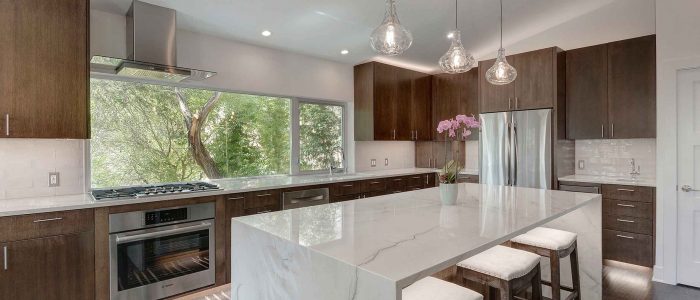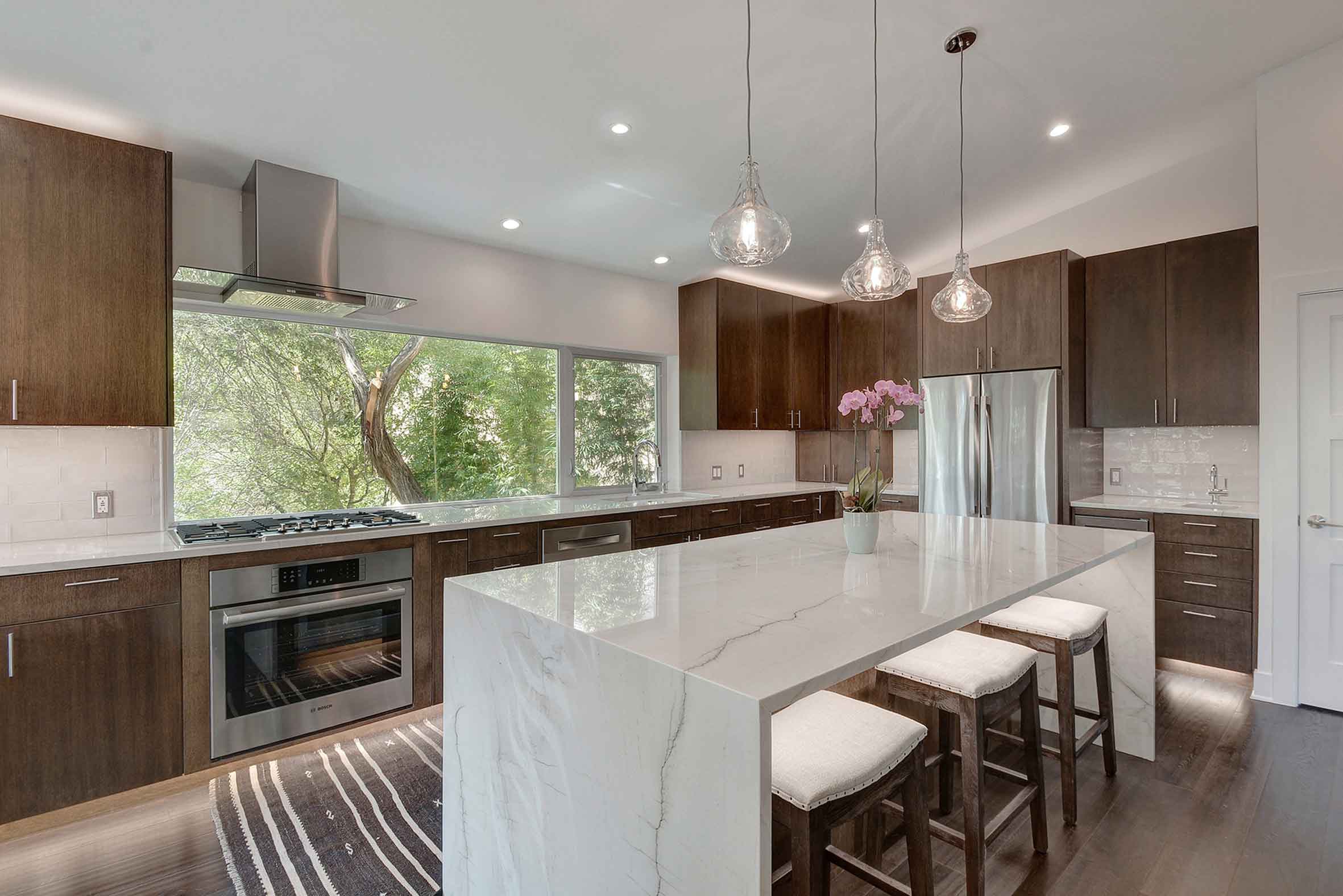Granite vs Silestone Worktops: A Comparison
Granite Worktops
Granite vs Silestone Worktops: A Comparison
Silestone is one of many brands of quartz worktop and it originates in Spain. Unlike granite, it is an engineered stone consisting of quartz and resin. The two components are bound together with polymers and pigments. Silestone quartz is a serious contender for natural stones like granite when it comes to worktop materials. Let’s compare some of its features and see why.

Durability
Like most engineered countertop materials, silestone is extremely tough, and granite is one of the hardest natural stones. Despite the strength and resilience of the materials, we always recommend you use chopping boards to keep kitchen worktops in perfect condition.
Another thing to note about granite worktops is that every slab of stone is different and some slabs are stronger than others. Heavy objects can chip away corners. What damages one granite countertop, may not even mark another. Cracks and chips can always be filled and rejoined with epoxy, acrylic and adhesive repair kit alternatives. On the other hand, damaged silestone is particularly difficult to repair.
Stain Resistance
Granite is a natural stone and is a porous material. On the other hand, silestone consists of quartz – an engineered stone that is non-porous. Usually this would mean silestone has an advantage over granite. As bacteria can gather in small pores and darken granite that hasn’t been looked after properly. It may come as a surprise however, that granite is actually very resistant to stains. This is due to its natural hardiness. So, unlike other natural stones like marble, granite needs sealing once or twice a year at most.
But if that’s still too much of a chore; silestone is extremely resistant to stains and does not require sealing.
Heat Resistance
You’ll find many online articles that contradict one another about heat resistance of materials like silestone and granite. Some say silestone is very resistant to heat. Others claim it’s not. The same contradictions apply to granite too.
Both materials are commonly used in kitchens and bathrooms, places in the home where hot utensils and equipment are used. It’s clear that they’ve got some heat resistant qualities. However, we still strongly recommend against putting hot pans, pots or curling irons on quartz and granite worktops as scorch marks could be the least of your worries.
Exposure to sudden and uneven temperature changes can cause thermal cracks to appear in both materials. Tests show that granite withstands higher temperatures than silestone before it cracks. However, frequent contact with hot utensils dulls and discolours them.
Maintenance
All kitchen countertops need maintenance, some just require a little bit more than others. With granite and silestone countertops, basic maintenance such as not leaving spillages to dry is enough to keep them in prime condition.
One thing to bear in mind is that granite worktops can be sensitive to certain cleaning products. Warm water, soft sponges, and gentle soap are sufficient enough. Silestone countertops are more flexible because they can withstand more abrasive detergents.
Installation
Granite and quartz countertops both require professional installation. Both are heavy materials that need proper handling during the installation process. The cost of installation depends on the supplier. Bear in mind that unforeseen difficulties with installation can sometimes result in additional costs.
Whilst granite is cheaper per square foot in comparison to silestone, it’s easier to make plans around the latter, as it can be manufactured to specific designs.
Aesthetics
Granite is a naturally occurring stone, with unique colours and patterns. Whereas with silestone, you can always depend on a consistent pattern. However, be aware that silestone that’s placed in direct sunlight can fade over time.
To decide which suits your preferences more, why not check out our selection of granite and silestone countertops?
Which is Better?
Ultimately, that opinion comes down to you! We’ve given you some of the features and qualities of each option to help you decide whether granite or silestone suits you better. If you’re still unsure, feel free to give our team a call. We can discuss your plans in greater detail that way. We’re always happy to help.
